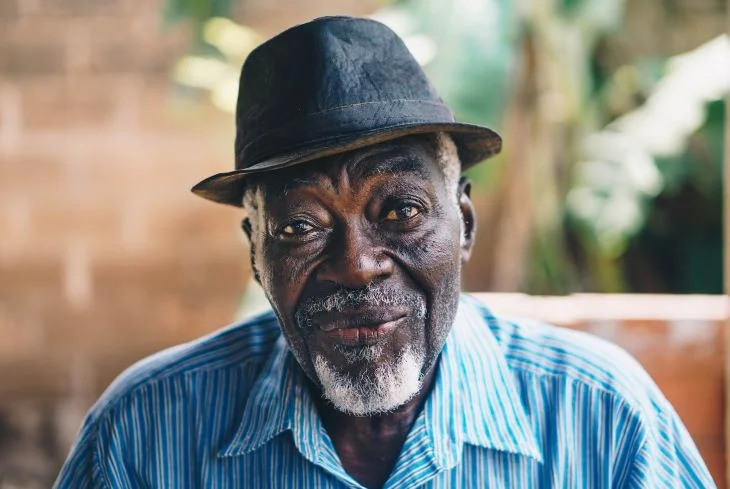Drug and Alcohol Rehab in Bristol
Addiction is a huge problem that causes devastation across the whole of the country, despite the United Kingdom is one of the richest countries in the world.
For those who suffer from substance addictions, the world can seem like a pretty bleak place.
A prolonged pattern of substance abuse can take a massive toll on a person’s physical and mental well-being, as well as their career, love life, and other personal relationships. It’s a cycle that is not likely to change until the person is ready to accept their problem and seek help.
Despite how devastating alcohol and drug addiction is, there is always the possibility of getting help and ultimately entering into recovery.
It will not be an easy process, but the grim alternative of a lifetime spent in alcohol or drug addiction does not bear thinking about.
If you are committed to the idea of getting sober, there is no better course of action than going to addiction rehabilitation. If you are a resident of the Bristol area, there is no shortage of rehab facilities available to you within a reasonable distance.
However, if you don’t have any knowledge of these different alcohol and drug rehabilitation centres and what they do, it can be very hard to make a decision as to which one is right for you. That’s where we at OK Rehab can help.
If you give us a call on 0800 326 5559, we can conduct a no-obligation telephone assessment in order to better understand your needs.
From there, we can use our expertise and contact database to identify an appropriate rehab facility for you and arrange to get you in there as soon as possible. We understand that making this call may be a daunting step.
After all, you would be acknowledging your alcohol or drug addiction – this is a big ask for many people suffering from addiction, but it is a step that is necessary.
If you are not yet ready to call us, read on for more information about what we do and what drug rehabilitation and alcohol rehabilitation actually involve.
Bristol is known as one of the creative hubs of the UK and was named the best city to live in throughout Britain both in 2014 and 2017.
However, Bristol is increasingly falling victim to the drug and alcohol crisis sweeping the UK.
A study of Bristol residents found that 20.3% of people engage in binge drinking behaviour, with 7.5% of these drinking alcohol at a rate that may be harmful to themselves and others. [1]
Bristol is also home to approximately 5000 opiate and/or crack cocaine users, which is the second-highest rate across UK cities. [2]
If you are living in Bristol and struggling with a drug or alcohol addiction, you have a range of addiction treatment options available to you, as well as other support services to help you achieve your addiction recovery.
Get alcohol & drug rehabilitation in Bristol for a variety of substance addictions, including:
- Binge drinking and alcoholism treatment
- Benzodiazepine addiction treatment
- Buprenorphine addiction treatment
- Cannabis addiction treatment and a guided cannabis rehabilitation programme
- Cocaine rehab and crack cocaine addiction treatment
- Crystal meth and other amphetamine addiction treatment
- Ecstasy rehab
- Heroin addiction treatment and other forms of opiate addiction and opioid use disorder treatment
- Ketamine addiction treatment
- Prescription drug addiction treatment
- Treatment for behavioural addictions such as gambling addiction, shopping addiction, sex addiction, porn addiction and eating disorder treatment
Please call our 24-Hour Helpline:0800 326 5559
What does OK Rehab do for rehabilitation in Bristol?

We at OK Rehab are experts in addiction recovery and the ins and outs of alcohol & drug addiction rehabilitation.
We can help you make an informed decision on where you should attend rehab and help you with all the practical steps of getting into private rehabilitation treatment.
We can provide advice and guidance on the various process of rehab, as well as answer any questions you might have, from planning for the financial investment of rehab to arranging care for your children or dependents while you are away.
We have a huge database of contacts in alcohol & drug rehabilitation centres all across the UK, as well as detailed knowledge of how each centre operates.
This makes it as easy as possible for you to get into rehab – we take all of the hard work off your hands so that you can concentrate on the most important thing of all – getting better and recovering.
Please call our 24-Hour Helpline: 0800 326 5559
How to hold an intervention in Bristol

You may have dismissed the idea of an intervention in the past, feeling helpless to prevent the tidal wave of addiction that is cascading over your loved one.
However, a meeting between the affected person and a group of their closest family members and friends can be extremely effective in pushing them towards alcohol or drug treatment.
Continue reading to learn how to hold a successful intervention and provide meaningful help and assistance to your loved one.
Form an effective intervention team
When choosing the members of your intervention team, it’s important to select people who are close to the affected person and will be able to communicate their feelings effectively.
Don’t choose people who may have trouble controlling their emotions or who may have a turbulent relationship with them.
Close friends, family members and spouses are usually more beneficial, and it is not recommended to involve children.
Use an interventionist
An intervention can be emotional and confrontational, and most people are not trained in navigating these difficult situations.
Using a professional interventionist can help the intervention run smoothly and ensure that each person feels safe and supported during this time.
Choose the right time and place.
It is recommended that you hold an intervention in a neutral location where you can expect privacy and safety and where the affected person is unable to remove themselves and hide away in a bedroom.
Try to choose a time in which they are less likely to be under the influence of drugs or alcohol, as this may make it difficult for them to take in what people are saying.
Research and practice
It’s important to understand the role that each person will play during the intervention, so practising what you will say in advance can be extremely helpful.
You should also research as much as you can about substance abuse treatment so that you are prepared to provide facts and answer any questions that may arise.
Consider other approaches
If you believe that your loved one will not respond well to a traditional intervention, you may want to turn to the CRAFT approach for an alternative solution. [3]
CRAFT stands for Community Reinforcement And Family Training and can give you the skills to gently guide the affected person towards alcohol or drug rehab treatment.
Call us on 0800 326 5559 for more information and advice about this intervention strategy.
Using the CAGE questionnaire for addiction treatments

A simple and easy questionnaire has been developed to spot the potential signs of addiction, and this is known as CAGE, which stands for Cut, Annoy, Guilty and Eye. [4]
While CAGE is not a formal diagnosis, it can help you to understand whether you are at risk of developing a substance use disorder.
It’s important to begin the questionnaire with an open mind – don’t think too much about your drug or alcohol intake before you start. Simply answer the following questions as truthfully as possible.
- Do you ever feel like you should cut down on your drug or alcohol use?
- Do you ever feel annoyed with people for being concerned about your drug or alcohol use?
- Do you ever feel guilty about your drug or alcohol use?
- Do you ever use substances as soon as you open your eyes in the morning?
Each time you answer ‘yes’ to one of the above questions, you will receive one point.
A total of two or more points may indicate a drug or alcohol dependency, and you should speak to your doctor or local support team about receiving a formal diagnosis.
These questions are not designed to make you feel bad about your behaviour around drugs and alcohol but to help open your eyes to the possibility that you may have developed an unhealthy relationship with substances.
Several other addiction assessments can also be used to determine the severity of drug & alcohol misuse, including The Alcohol Use Disorders Identification Test (AUDIT), The Diagnostic and Statistical Manual of Mental Disorders criteria (DSM-5) and The American Society of Addiction Medicine criteria (ASAM).
These questionnaires will focus on your addiction history, the frequency and severity of your substance use, your past attempts to recover and experiences of relapse, your home recovery environment and several other concerns that will be key in creating a thorough recovery plan.
Please call our 24-Hour Helpline:0800 326 5559
How much does drug & alcohol rehabilitation cost in Bristol?

If you have already written off the idea of addiction rehabilitation due to a lack of funds, the following information may help to change your mind.
Rehab does not have to involve luxury facilities that charge upwards of £100,000 per stay.
Instead, you can look into more affordable alternatives such as outpatient treatment programmes and shorter stays at more minimalistic clinics.
The average cost of rehab in the UK is £495 per day, which can come to approximately £14,000 for a 28-day stay, with some clinics charging as little as £1000 a week.
These prices cover a range of facilities such as food, medications, counselling and insurance.
While it may be a large amount of money to spend right now, attending rehab is likely to save you money in the long term as you will be more likely to avoid legal fees, unemployment and personal debt.
Please call our 24-Hour Helpline:0800 326 5559
How long does drug & alcohol rehab Bristol last?

Many people want to know how much time they will need to put aside for addiction rehabilitation, particularly if they have work or family commitments.
You will usually be offered a choice between a 30, 60 or 90-day rehabilitation programme, but this depends on the severity of your addiction and your budget for alcohol & drug treatment.
If you are accessing substance abuse treatment through the NHS or insurance, you may be limited by the amount of time dictated by these organisations.
Home detox will usually last for seven to ten days, which involves withdrawing from alcohol or drugs from the privacy of your own home while being regularly monitored by a medical professional.
This can be an effective way to start your recovery journey and is most beneficial when combined with intensive counselling, which can add another three weeks to the substance abuse treatment process.
Please call our 24-Hour Helpline:0800 326 5559
Is it possible to access drug and alcohol rehab Bristol through the NHS?

The option to access drug and alcohol rehabilitation on the NHS is available, but the process is often long and difficult to complete successfully.
Contrary to what many people think, your doctor is not able to prescribe you a stay at rehab through the NHS – instead, you will need to work with a local drug and alcohol support team who will apply to the council on your behalf.
Before applying, you will usually need to demonstrate that you are committed to recovery.
This may involve attending local support groups, completing community-based programmes and detoxing from drugs or alcohol.
Even if you complete the above steps, it is still possible for your application to be denied, as NHS-funded rehab costs taxpayers a large amount of money each year.
The NHS does not receive enough funding to be able to accept every application, so, unfortunately, many people are not able to access this type of rehab treatment.
Please call our 24-Hour Helpline:0800 326 5559
Is it possible to access drug and alcohol rehab through health insurance?

If you have not been able to successfully obtain funding for rehab through the NHS, your next step is to look into your options for private health insurance or employee insurance.
It is recommended that you take the time to read the terms and conditions of your contract, as you may be covered for a stay at an addiction rehabilitation clinic.
Keep in mind that both of these options will usually require you to inform your insurance provider or employer about your addiction, which may increase your future monthly payments.
In the UK, your employer cannot legally fire you due to an addiction, but many people still remain cautious about informing their workplace about private health matters.
Our team at OK Rehab can help to talk you through your options and provide solutions to many of your funding concerns, so give us a call today for advice and guidance.
Please call our 24-Hour Helpline:0800 326 5559
Should I choose NHS addiction treatments or private rehab in Bristol?

Knowing what you need from your addiction treatment can help you decide whether to opt for NHS-funded rehab or private rehabilitation treatment.
If you require immediate help, private rehabilitation is recommended due to the ease and speed of the application process. In most cases, you will be able to access alcohol or drug treatment straight away, while NHS-funded rehab clinics often have a long waiting list.
You may also benefit from private rehab if you wish to access a specific type of therapy, such as equine or music therapy.
These niche forms of addiction treatment are often not available through NHS-funded rehab services due to the additional expenses involved.
The types of therapy usually available at a private rehabilitation treatment in Bristol include:
- Acceptance and Commitment Therapy
- Acupuncture
- Art therapy
- Cognitive Behavioural Therapy (CBT)
- Dialectical Behavioural Therapy (DBT)
- Drama therapy
- Eye Movement Desensitization and Reprocessing
- Motivational therapy
- Rational Emotive Behavior Therapy
- Brief intervention
- Contingency management
- Coping mechanisms work therapy
- Equine therapy
- Family therapy
- Group therapy
- Individual therapy
- Mindfulness
- Motivational interviewing
- Music therapy
- Talking therapies
Cost is another important factor to consider, as private rehabilitation treatment is typically considerably more expensive than NHS rehab.
While NHS-funded rehab may be free, you will also need to factor in the costs associated with taking 30, 60 or 90 days off work while continuing to pay your regular household bills.
Please call our 24-Hour Helpline:0800 326 5559
The benefits of staying in Private Rehab in Bristol

With private rehabilitation treatment, you will not be obliged to linger on any kind of waiting list – you will be able to receive treatment straight away once you have been assessed and referred to rehab.
If you were to try to go through the NHS for substance abuse treatment, it is likely that you either would have to wait for months for placement or that you may not be deemed a high enough priority to be on the waiting list. With private facilities, this will not happen.
Of course, there is a trade-off in that any private addiction rehab centre will charge you for alcohol or drug treatment.
We understand that this may be a concern if your finances aren’t great right now, but we encourage you to think of the value that you would get from successfully completing rehab and starting a new life of sobriety.
Think of the huge amount of money you would save over your lifetime by never using drugs or buying alcohol again! We are happy to discuss financing options in detail with you on the phone once we have completed your assessment.
We will make sure you are fully aware of how much alcohol or drug treatment will cost before you make a decision as to whether you would like to go ahead with drug and alcohol rehabilitation.
You are not bound to a decision at any point during the phone call – you can always take your time and think about it.
Please call our 24-Hour Helpline:0800 326 5559
Should I choose inpatient rehab or outpatient rehab in Bristol?

Committing to a residential rehab clinic as an inpatient is a big step that must be carefully considered.
While it is generally accepted that residential treatment is the most effective form of addiction treatment, many people also find success in outpatient programmes. [5]
As an inpatient, you will benefit from being in a completely new environment away from triggers and the daily pressures of life.
Your entire focus will be on rehab and recovery without the distraction of work or family responsibilities.
This is an effective option for someone with a more severe addiction, as they can be constantly monitored and cared for to prevent any serious withdrawal symptoms from occurring.
An outpatient treatment programme allows you to continue with your responsibilities while still focusing on your recovery.
You will attend rehab on a part-time basis while continuing to work and care for your family.
This type of addiction treatment is often more affordable than an inpatient programme, allowing many people who would not otherwise be able to access addiciton rehabilitation to benefit from this treatment service.
Please call our 24-Hour Helpline:0800 326 5559
The Rehab Process, Step by Step

Even if you are open to the idea of going to rehab, you may still be wondering what day-to-day life will look like once you arrive at rehab. Below, we have laid out the different stages of rehab in chronological order.
This process will usually take place over a time period of about 28 days, although this varies slightly per individual, depending on their circumstances.
While all alcohol and drug rehabilitation centres have their own slightly different ways of operating, any centre that you go to will involve a process of detox, therapy and aftercare.
Here’s what you can expect from each:
Detox

This is one part of the addiction rehabilitation process that most people will at least be aware of, and some may have some apprehension about – going through detox.
At rehab, you will have the opportunity to do this in a medically supervised fashion with the help of a dedicated team of qualified recovery nurses and addiction treatment professionals.
Those professionals will be there to help you when things get rough – for example, if you end up experiencing some of the unpleasant side effects of withdrawal, such as muscle pains, anxiety, or profuse shaking or sweating – and are able to provide both emotional support and specialist detox medications.
The severity of these effects will vary depending on how long you have been using them.
If you are detoxing from alcohol abuse, it is likely that you will be made to reduce your alcohol consumption over a number of days rather than stopping abruptly. It is usually safer to do it this way.
Speaking of safety, you should absolutely NOT attempt to go through detoxes by yourself before arriving. This is extremely dangerous and can have disastrous consequences such as seizures or even death.
When you get to rehab, the staff will be able to guide you through the medical detox process properly. You will then be able to move on to the next phase – engaging in therapy sessions.
Please call our 24-Hour Helpline:0800 326 5559
Therapy

At rehab, you will go through various types of therapy in order to get to the bottom of your addiction and the underlying factors behind it.
This may involve exploring some traumatic events from your past or talking about some uncomfortable subjects – although this will not be easy, it is a necessary part of healing from addiction.
Your therapy plan will be drawn up towards the start of your stay as you start to come out of your medical detox.
It will almost certainly include counselling, group therapy, and cognitive behavioural therapy.
It could also include less well-known types of therapy, such as art therapy and motivational therapy, as well as educational classes on mental health and things like stress management techniques.
By the time you have been through therapy, you will have a much better understanding of addiction in general, particularly as it pertains to your own condition.
Knowledge is power, and you will be in a much better position in terms of fighting your addiction. This will stand you in good stead when you go back into the outside world.
Please call our 24-Hour Helpline:0800 326 5559
Alcohol detox and rehab in Bristol

When you enter a rehab clinic to recover from alcohol addiction, you will begin with full detoxification before moving on to counselling, relapse prevention and eventually aftercare.
As your body and mind detox from the powerful effects of this substance, you can expect to experience a range of withdrawal symptoms, including nausea, insomnia, tremors and confusion.
In more serious cases of alcohol withdrawal, commonly known as delirium tremens, you may experience hallucinations, seizures and unconsciousness. This condition can be life-threatening, and you will need to seek immediate medical treatment. [6]
Our rehab clinics in Bristol will be able to help alleviate some of these withdrawal symptoms, with staff prescribing specialist detox medications to help alleviate these conditions.
You will then undergo a course of counselling sessions lasting at least three weeks and will be encouraged to continue with therapy even after you leave the alcohol & drug treatment centre.
Stages of alcohol detox
Alcohol dependence can be confirmed fast and efficiently using the Alcohol Use Disorders Identification Test, DSM-5 or CAGE questionnaire.
Dependent drinkers will have built up a strong tolerance to alcohol, and experience unpleasant withdrawal symptoms (alcohol withdrawal symptoms) or alcohol withdrawal syndrome when they stop drinking alcohol, so these symptoms need to be managed carefully.
To ensure that the risk of seizures is curtailed, a rehab medical team may prescribe patients with Chlordiazepoxide, brand name Librium, as they undergo medical detox as this has been proven to offer more protection against the risk of seizures.
Medically-assisted detoxes are needed in order to limit or prevent the worst effects of alcohol withdrawal, including encephalopathy (Wernicke encephalopathy) and delirium tremens.
If your addiction is less severe, then a medically supervised home alcohol detox may be possible.
Please call our 24-Hour Helpline:0800 326 5559
Cocaine rehab in Bristol

Cocaine may be known as a party drug, but this substance is ruining the lives of people across Bristol due to its highly addictive properties.
Thankfully there are a wide variety of rehab clinics that specialise in treating cocaine addiction, with patients focusing on counselling and preparing for aftercare treatments for the majority of their stay.
Cocaine is not physically addictive, so you will not require a cocaine detox.
Instead, through counselling, you will learn how to rebalance your brain and body chemistry which will help to alleviate cravings and fight against triggers.
You may experience strong feelings of depression and anxiety as your body relearns how to function without this substance, and these may persist for several months after you leave substance abuse treatment.
Please call our 24-Hour Helpline:0800 326 5559
Heroin detox and heroin rehab in Bristol

As Bristol has one of the highest rates of opioid use in the UK, our rehab clinics have a wealth of knowledge and experience when it comes to treating heroin addiction.
Commonly regarded as one of the most difficult substances to recover from, you can expect to experience a range of withdrawal symptoms during heroin rehab, including vomiting, tremors, confusion and intense cravings. [7]
You may have the option to undergo maintenance therapy, which involves switching to a professionally regulated and dispensed substance such as methadone.
Alternatively, you may prefer to undergo a full medical detox under the supervision of medical professionals in order to resist the impact of heroin withdrawal.
You will also benefit from a range of counselling treatments and a complimentary 12-month aftercare rehabilitation programme to help reduce the risk of relapse in the future.
At rehab you may also receive support for other conditions following a heroin addiction, such as hepatitis.
Please call our 24-Hour Helpline:0800 326 5559
Cannabis rehab in Bristol

If you live in Bristol and are concerned about your relationship with cannabis, there is help available to you.
Many people believe that cannabis is not addictive, but this is not the case.
While this substance may not be physically addictive, it is possible to develop a psychological addiction that manifests in increased anxiety and depression, apathy, paranoia and a higher risk of developing schizophrenia.
Cannabis rehab in Bristol will help you to rebalance your body and mind, learn how to cope with stressful situations in a healthy way and manage any triggers or cravings that may occur even years later.
It involves three weeks of intensive counselling with an experienced therapist who will challenge any negative thought patterns and help you build a more fulfilling life.
Please call our 24-Hour Helpline:0800 326 5559
Types of addiction treatments in Bristol
As a fairly large city, Bristol benefits from a wide range of rehab clinics that can offer many different types of therapy treatments to suit your individual needs.
For example, you may benefit from talking therapies that are designed to help you develop a more positive mindset and thought patterns. These include:
- Cognitive behavioural therapy (CBT)
- Dialectical behaviour therapy (DBT)
- Acceptance and commitment therapy (ACT)
Alternatively, you may require assistance in defining your recovery goals and finding the motivation to continue with alcohol and drug treatment. The following therapy methods can be helpful with this:
It can also be helpful to learn how to more effectively communicate with others as part of your therapy treatment, and the below methods may be useful:
There are various other types of therapy available that can be used in conjunction with the above treatments, such as alternative and holistic methods, including acupuncture, music therapy and mindfulness.
Please call our 24-Hour Helpline:0800 326 5559
Addiction psychology: Understanding dual diagnosis

Do you often feel as though you need to use drugs or alcohol to help you cope with feelings of anxiety or depression? Or have you started to notice your mental health deteriorating as you continue to use substances?
You may have a dual diagnosis, which is defined as the simultaneous existence of a substance use disorder and a mental health condition. [8]
This is one of the trickier aspects of addiction psychology which routinely adds another layer of difficulty to effectively treating addiction.
Upon arrival at a drug & alcohol rehab centre, you will get a complete psychiatric assessment where a psychiatrist can determine whether you need any psychiatric treatment.
Some of the conditions most commonly associated with a dual diagnosis are listed below:
- Bipolar disorder
- Borderline personality disorder (BPD)
- Attention-deficit hyperactivity disorder (ADHD)
- Schizophrenia
- Obsessive-compulsive disorder (OCD)
- Post-traumatic stress disorder (PTSD)
- Anorexia, bulimia or binge eating disorder
- Generalised anxiety disorder (GAD)
- Depression
A dual diagnosis is more common than you may think, with approximately half of people entering alcohol & drug treatment being diagnosed.
It is very difficult to recover from one disorder without treating the other, and our clinics across Bristol are trained to notice the symptoms of a dual diagnosis and provide an effective treatment, which may include medication, counselling and extra support during the alcohol or drug detoxification process.
Please call our 24-Hour Helpline:0800 326 5559
How do drug and alcohol rehabs in Bristol help to prevent relapse?
You may discover and explore the various reasons behind your addiction during your time at the rehab, but the real challenge begins once you leave the treatment centre.
This is when you will begin putting the strategies and techniques that you learned at rehab into action, and it’s common to struggle during this time and potentially even relapse.
Staff at our drug and alcohol rehabs in Bristol are aware of this and will work with you during your stay to ensure that you are prepared for the outside world.
This involves being aware of your personal triggers and anything that may cause you to begin craving your substance of choice, as well as a deeper understanding of the initial causes of addiction.
Staff may role-play specific scenarios with you to give you an understanding of how best to deal with these situations, allowing you to practice your responses.
They will also help you to create a relapse prevention plan which you can refer back to at any time. This may involve worksheets, documents and detailed instructions on how to spot and prevent the signs of a potential relapse.
You will also be encouraged to take advantage of the wide range of aftercare treatments and support services available across Bristol.
Please call our 24-Hour Helpline:0800 326 5559
How can I access aftercare and support services after rehabilitation in Bristol?

While attending rehab is a vital step towards long term recovery, what you do after you leave rehab is just as important.
Making sure that you can access aftercare and support services as you transition back into regular life and continue to make your recovery a priority is key to continuing your sobriety.
Some of the most effective aftercare treatments and support services in Bristol include:
- 12-Step support groups in the local area such as Alcoholics Anonymous and Narcotics Anonymous which follow the 12 steps, giving yourself over to a higher power.
- Outpatient treatment programmes that allow you to access addiction rehabilitation services on a part-time basis
- Ongoing counselling after leaving rehab in Bristol, allowing you to continue working through your issues
- Home detoxes that allow you to recover from the physical effects of addiction at home
- SMART Recovery programmes that help you to continue your recovery after your time at an addiction rehab centre has ended
- Al-Anon meetings for friends and family members affected by the addiction
If you live in a rural area or are unable to regularly leave your home, most of these support services are also available online.
You can access therapy over the phone, using online apps or through Zoom calls, and many local support groups also have an online branch.
If you are able to attend in person, you will have the opportunity to form connections with other people who share similar experiences to you.
Your rehab clinic in Bristol may also offer an alumni programme, allowing you to stay in touch with the staff and regularly check in with them to continue your recovery and continue building a support system.
Please call our 24-Hour Helpline:0800 326 5559
How effective are drug & alcohol rehabs at treating addiction?

There is nothing more effective at treating drug and alcohol addiction than a stay in rehab. You will be able to access the highest quality of care and be guided through each step of the recovery and healing process by a team of professionals.
What’s more, your treatment plan will be tailored to you and your specific needs. It covers everything from alcohol or drug detox to planning for life after leaving rehab.
This will be the case whichever rehab you are referred to – patients are treated as individuals.
Accessing all of these different addiction treatments outside of addiction rehabilitation would be incredibly complicated and time-consuming and may not even be possible.
It would also likely cost you more money than you would spend at rehab when you add up the cost of the various addiction treatments.
All things considered, rehab just makes the most sense for anyone who is trying to recover from drug & alcohol misuse.
Please call our 24-Hour Helpline:0800 326 5559
Charities & other services for drug & alcohol addiction in Bristol

1. Ara Recovery For All
Address: Kings Court, 11 King St, Bristol BS1 4EF
Telephone: 03301340286
Website: https://www.recovery4all.co.uk/gambling-help/get-support/
2. Swan Alcohol Project
Address: 1 Fairlawn Rd, Montpelier, Bristol BS6 5JR
Telephone: 01179892521
Website: http://www.theswanproject.co.uk/
3. BDP | Bristol Drugs Project
Address: 11 Brunswick Square, St Paul’s, Bristol BS2 8PE
Telephone: 01179876000
Website: http://www.bdp.org.uk/
Cocaine Anonymous, Narcotics Anonymous (NA) and Alcoholics Anonymous (AA) can help you to stay sober.
Smart Recovery can help you to keep relapse triggers in check, and the NHS provides free, reliable information for drug and alcohol dependency and addiction.
Al-Anon are another organisation that can make addiction easier to navigate. Find mental health with Rethink Mental Illness, Mind, Young Minds, Samaritans and Papyrus.
Organisations which give support for free include NHS Foundation Trust, Turning Point, We Are With You, National Association for Children of Alcoholics, Change Grow Live and Alateen.
Rehabs and organisations are advised by the American Society of Addiction Medicine and the National Institute for Health and Care Excellence so you are in good hands with person-centered care.
You may get access to sober living houses as part of your aftercare treatments after you leave rehab to help you maintain your sobriety and help with relapse prevention.
Get help for drug & alcohol addiction in Bristol today

Hopefully, after reading the information above, you will now have a much better understanding of what rehab involves and how we at OK Rehab can facilitate that kind of care for you.
Contact us today to find out more about your options locally or in your chosen destination. We can help you choose the right place for you or your loved one.
All of the addiction rehabilitation centres we recommend are regulated by the Care Quality Commission CQC (England and Wales) or the Care Inspectorate (Scotland).
We have the means to refer treatment service users to facilities across the Bristol and Avon area.
We can refer you to addiction treatment services available across Bristol and the surrounding area, including in Ashley Down, Ashton Gate, Avonmouth, Barton Hill, Bedminster, Bedminster Down, Bishopston, Bishopsworth, Blaise Hamlet, Brentry, Brislington, Bristol, Broom Hill, Broomhill, Clay Hill, Clifton, Coombe Dingle, Cotham, Downend, Eastfield, Easton, Eastville, Filton, Filwood Park, Fishponds, Frenchay, Golden Hill, Headley Park, Henbury, Hengrove, Kingswood, Knowle, Lawrence Weston, Lockleaze, Montpelier, Netham, Novers Park, Redfield, Ridgeway, Southmead, Speedwell, St George, Stockwood, Two Mile Hill, Westbury Park, Whitehall, Yate and even more.
If you are ready to acknowledge your addiction and face it head-on, please give us a call as soon as possible on 0800 326 5559.
In your own time, we can take you through the telephone assessment, identify the right CQC rehab facility for you, and get you referred there as soon as possible.
Before you know it, you will be able to begin treatment and work towards getting your life back on track. Addiction is hell, but there is always a way out through rehab.
Please call our 24-Hour Helpline:0800 326 5559
References
[3] https://www.ncbi.nlm.nih.gov/pmc/articles/PMC3860533/
[5] https://www.ncbi.nlm.nih.gov/books/NBK507689/
[6] https://www.ncbi.nlm.nih.gov/pmc/articles/PMC4085800/
[7] https://nida.nih.gov/publications/research-reports/heroin/what-are-treatments-heroin-use-disorder






